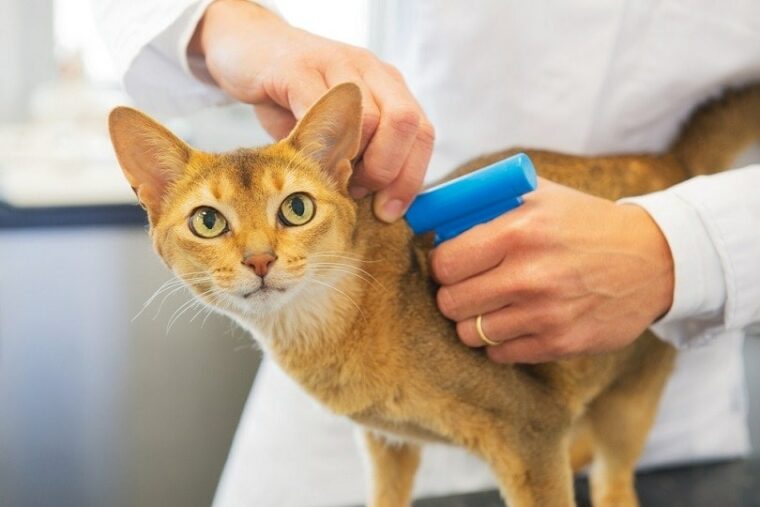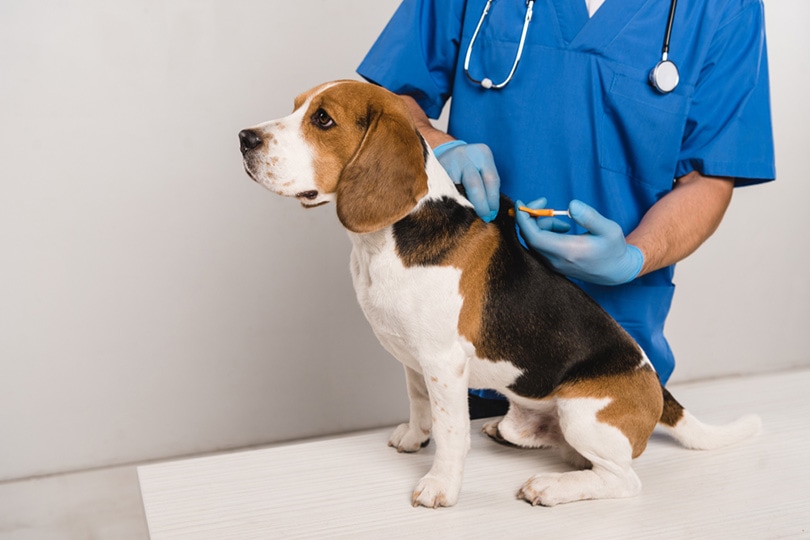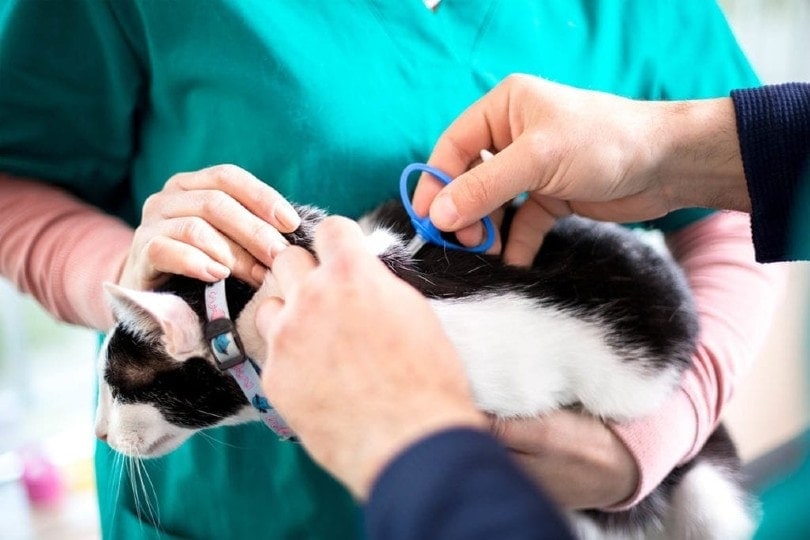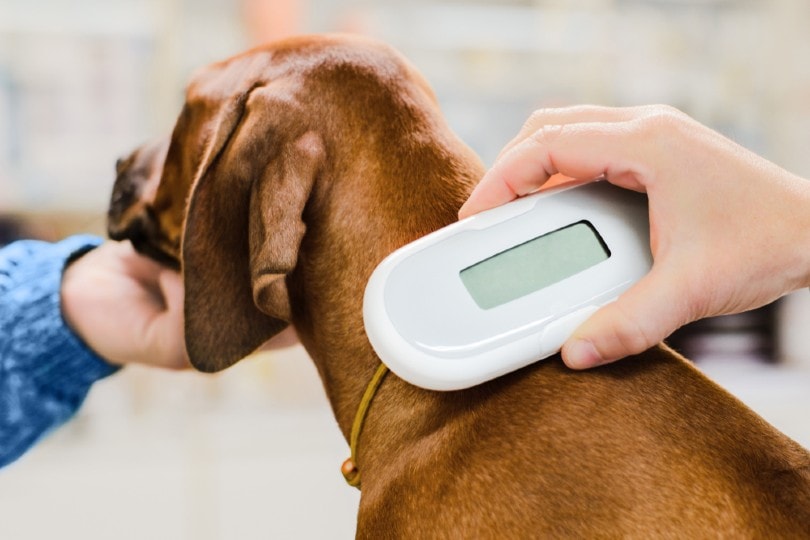
Click to Skip Ahead
A microchip is about the same size as a grain of rice but can be invaluable if your pet ever goes missing. June is National Microchipping Month, and its purpose is to raise awareness and encourage pet parents everywhere to get their furry loved ones microchipped.
In the spirit of solidarity with rescue organizations and veterinary clinics that work hard to raise awareness, we’ve put together this guide explaining what microchipping is and why it’s so important.
What Is a Microchip?
A microchip is a tiny, scanner-activated electronic chip that is placed under your pet’s skin by a vet or another approved microchip implanter (like a rescue organization). The chip contains an identification number linked to a secure pet ID database where your contact information is stored.
If your pet is lost and turned into a shelter, rescue organization, or veterinary clinic, the microchip will be scanned. As long as your contact information is current, the organization or clinic will be able to contact you and therefore reunite you with your pet.
Once the chip has been inserted, it’s crucial to make sure your contact information (phone number, home address, etc.) is kept up to date. If your information is not updated as necessary, the chip will no longer be effective. Cats, dogs, horses, birds, ferrets, and even reptiles (depending on their size) can be microchipped.

Is My Information Kept Private?
Yes, your contact information is kept on a secure database owned by the microchip provider. These databases are protected by strict security measures, and the only information on the microchip itself is your pet’s unique identification number. Only approved bodies can access your information in order to get in touch with you if your pet is found.
Can a Microchip Track My Pet?
No, a microchip is not a GPS-tracking device, so it can’t let you know your pet’s whereabouts. For peace of mind, you might want to consider a GPS-tracking collar. These allow you to see where your pet is at all times, so they can be invaluable if your pet escapes or gets lost.
Why Get My Pet Microchipped?
There are a multitude of reasons to have your pet microchipped. First of all, microchipping increases your chances of having your pet returned to you in a lost-and-found situation. Collars with ID tags may help in some cases, but they’re not reliable because they can break, fall off, or be removed. Microchips, on the other hand, are permanently there under your pet’s skin.
According to a study across 53 animal shelters by The Ohio State University College of Veterinary Medicine, of microchipped stray cats and dogs that entered the shelters, 73% of owners were located. It was also found that, of all stray dogs and cats, the median rates of reunion with owners were 2.4 times higher for dogs with microchips and 21.4 times higher for microchipped cats.
Then, there’s the legal stuff. In some places, including in several Australian states, microchipping cats and dogs is mandatory by law. In the UK, dogs must be microchipped, and the government recently announced that all pet cats must be microchipped by June 10, 2024. In the United States, some cities, including Houston, Texas, have also made microchipping mandatory for cats and dogs.
If you’re not sure if microchipping is mandatory in your city, state, or country, please check this with your local authority. Some authorities have hefty fines in place for those who do not comply with microchipping laws.

Does Microchipping Hurt?
Microchipping is a quick, safe, and simple procedure. A vet uses a hypodermic needle to insert the microchip—which is about the same size as a grain of rice—under the skin, typically between the shoulder blades.
Your pet might feel a brief sting when they receive the injection, but this is completely normal and very similar to getting a regular vaccine shot. In any case, the benefits of getting your pet microchipped far outweigh the moment of minor discomfort they may feel from the injection.
Complications of Microchipping
As with most medical procedures, there is always a small chance of complications occurring due to microchip insertion. Rest assured, though, that it’s rare for microchipping to cause any problems, especially if the chip is inserted by a qualified vet.
One of the most common problems is the chip moving away from where it was implanted under the skin. In some cases, microchips can fail, or the implantation site can become swollen or infected.
If you’ve heard that microchips cause tumors and you’re worried, you can take a deep breath—this is incredibly unlikely to happen. According to the WSAVA Microchip Committee, the number of reported cases is “tiny” and the risk, if any at all, is “extremely small”.

What Happens During National Microchipping Month?
It depends on the clinic or rescue organization, but some organize special events to raise awareness of the importance of microchipping. Some veterinary clinics even offer the procedure at a discounted rate during National Microchipping Month to encourage people to get their pets microchipped.
Final Thoughts
The idea of our beloved furry family members going missing is simply unbearable, but a microchip gives you a much better chance of being reunited with them if this ever happens. What’s more, the procedure is so safe, quick, and often inexpensive that there’s no reason not to get your pet microchipped! All you need to do is contact your vet and book an appointment.
- You Might Also Be Interested In: Animal Pain Awareness Month
Featured Image Credit: Ivonne Wierink, Shutterstock






